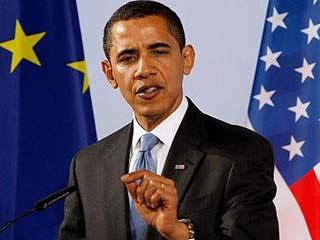‘American voters are growing tired of being told by their President that he feels their financial pains but that the economy is on the right track’, a key aide in Washington said. ‘The problem is that their daily life does not bear this out. The employment rate went up to nearly 10%, when Obama told the people that his administration had taken steps to break the back of the recession. Statements like these make him sound politically tone deaf’.
The President has not convinced regular citizens that his primary goal is an economic recovery for ‘Main Street’. People think often that he is much too close to Wall Street. After the collapse of Lehman Brothers two years ago, at the beginning of a financial crisis as never seen before, the still campaigning Obama promised to curtail the power and the towering bonuses of bankers. But read the papers. The greedy banker bonuses are higher than ever while many men and women ‘in Main Street’ are still not recovered from the loss of their savings and jobs. The US Census Bureau recently published that one in seven American citizens lives in poverty; the highest level in 51 years.
Many political analysts expect that Republicans will win the 39 seats they need to take over control of the House of Representatives. There would be even a chance for the Republicans of gaining 10 senate seats and winning a majority in the Senate. But do the US voters want a divided government? The French call it ‘cohabitation’: the President from one party and the majority in the Parliament or the Congress from the other. It happened in France, but in the US as well. After 1994 President Clinton worked with a Republican Congress and had some notable successes.
But 2010 is not 1994, the outlook for co-operation is less promising. One thing is that President Obama is not a pragmatic instinctive centrist as President Clinton was. Another that the Republican Party seems to move to the uncompromising right, the Tea Party movement lead by Sarah Palin. If she wins, Republican sights will be focused on 2012, the next Presidential elections.
There is a serious risk of a bitter gridlock in Washington DC. Democrats, including the President, have brought the situation upon themselves. The Health Care Bill, hailed in Europe where Obama still is more popular than in his own country, is not wanted by a majority of Americans. The same majority disagrees with what they call Obama’s war in Afghanistan.
Obama has left independent voters perplexed and the Democratic base dispirited. Many voters think that a gridlock would be better than an unimpeded liberal agenda. But the US faces big policy challenges that cannot wait: for instance immigrant reform and fiscal reform.
Democrats at risk of an epic defeat
Democrats are facing large-scale losses in the midterm congressional elections on November 2. All 435 seats in the House of Representatives and 37 of the 100 Senate seats are up for grabs. The result will have a defining impact on the second half of President Obama’s first term.


The President has not convinced regular citizens that his primary goal is an economic recovery for ‘Main Street’. People think often that he is much too close to Wall Street.





